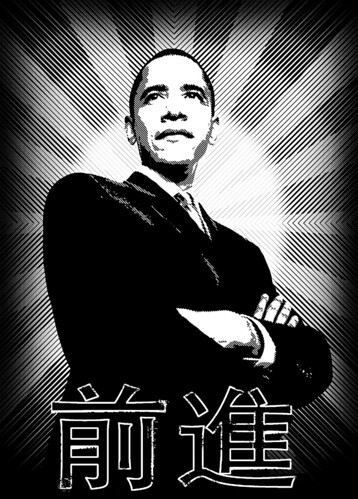Rebecca Mackinnon has started a public wiki for predictions about China in ’09. The first entry is a post by Daniel Drezner whose blog just migrated to Foreign Policy. Drezner cites the recent Charter ’08 manifesto signed by hundreds of Chinese intellectuals and thousands of netizens, which calls for a new constitution, democratic reform and other extraordinarily ambitious changes. Drezner poses the question:
Question to readers: is 2009 the year that China’s government collapses? Or is it just another year in which there will be a crackdown of a mass uprising? Because those may be the only two options.
I agree with Matthew Stinson who points out in the comments to Drezner:
“The main problem with your thesis is the degree to which Chinese intellectuals can shape the discourse, rouse the public, and force policymakers to engage their ideas, and that degree is almost zero.”
Charter ’08 arguably has had a more significant impact on readers of the New York Review of Books than it has on China. Drezner’s position illustrates pretty well American conventional wisdom on China:
1) That for 20 years the Chinese government has been on its “last chance” with the Chinese people, and if it disappoints them, they will rise up and throw the bums out.
2) That the thousands of “mass incidents” reported around the country are warnings that they will carry out this ultimatum.
3) That it’s not a question of if the government will collapse but when, and that everything revolves around the idea of collapse either being imminent or delayed, but always present.
These assumptions ignore complications such as:
1) That the protests of 1989 were not nationwide, nor were they solely composed of students or calls for democracy. Jeffrey Wasserstrom has explicitly pointed out that the protestors were not the same as those in Eastern Europe which Charter ’08 takes its inspiration.
2) That the “mass incidents” around the country are not connected to any intellectual calls to reform, or directed at wholesale change of the national government. In fact, they are commonly directed at local officials and calls for the national government to come to the rescue.
3) The past twenty years, from a Chinese citizens perspective, were in fact revolutionary, and in general China has had quite a bit of revolution and its not exactly something desired.
Here, then, are my predictions for China in 2009 (or 2010, depending how the financial crisis plays out) in no particular order:
- As U.S. and UK retailers, as well as European ones, continue to cut back and even fail, China’s export model will come under increasing strain. The looming credit card crisis will reduce consumption even further, exacerbating the problem. While China has cash to lend on hand, there are no mechanisms by which it can use it to rescue thousands of small and medium sized manufacturers who operate with little spare cash. The government is attempting to use trade policy to buoy exporters, but this can only go so far if Americans have no money to spend.
- It will be extremely difficult for China to increase domestic consumption, not only as thousands lose jobs and unemployment increases, but also because problems with quality assurance in local brands will intensify as manufacturers cut corners even more to increase their shrinking margins and enforcement and regulation mechanisms are ineffective, or in many cases simply don’t exist. There are also bureaucratic hurdles such as permits and fees for imported equipment currently used solely for exports, though the government could waive this in a pinch.
- There will be increasing dissatisfaction and confrontation, but it will focus on education and healthcare, which have long been regarded as the biggest failures of Opening Up and Reform. Like many protests in the past, these will not call for the overthrow of the government but demand the government take action. Its been two years since President Hu Jintao acknowledged the collapse of the healthcare system, particularly in rural areas, but both healthcare and education have suffered similar problems in urban areas as well. First, there is the problem of rampant petty corruption. Second, and overlapping with the first, is that both have been driven purely by how much an individual can pay, either in bribes or by going to more expensive private schools and hospitals (which were mostly built with taxpayers money by public counterparts). It’s “One Country, Two Systems”, based on how wealthy you are.
The Chinese government seems to be aware of all of this, and has been trying to get a healthcare reform package together along with a social security number system. The last one is a mirror image of the U.S. social security number, which began only for tracking government benefits and later became the de facto ID number for legal and financial purposes. In China, its happened almost precisely the other way around. I expect to see the government making some very big noises about healthcare this year, but I’m not so sure education is being given as much priority. Nevertheless, during these past several golden years, Chinese citizens may have been more likely to grudgingly accept the costs of healthcare and education because they could afford them, or at least saw the promise of one day having enough money to afford them. In lean times, when the prospect of future earnings is dim, people may be less likely to accept the status quo and demand the government fix it. It will be interesting to see if this is linked to criticism of the Chinese government’s investment of foreign currency reserves.


